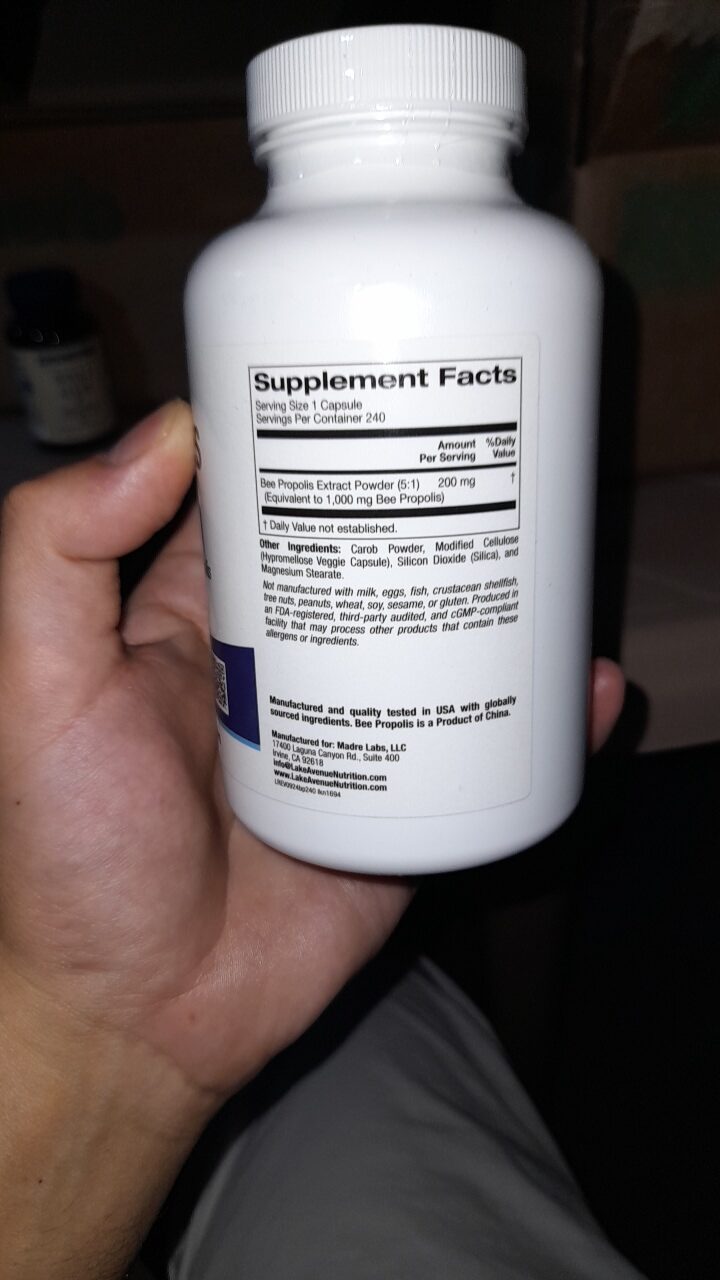
Barcode: 898220016945
Bee Propolis Extract Powder (5:1)
HALAL
📝 Reason: All ingredients in the product are either plant-derived or from permissible sources according to Islamic law. No Haram ingredients or E-codes were identified. The product does not contain any meat or meat-derived ingredients, eliminating the need for Halal certification for meat products. Thus, the product is considered Halal.
🏷️ Category: Supplements
📄 Certificates: Vegetarisch
Ingredients:
Details
Understanding the Halal Status of Bee Propolis Extract Powder
The Bee Propolis Extract Powder (5:1) has gained popularity as a dietary supplement due to its numerous health benefits. But for many consumers, especially those adhering to Islamic dietary laws, understanding whether this product is Halal is paramount. This article delves into the components of Bee Propolis Extract Powder, analyzing each ingredient and its Halal status.
What is Bee Propolis Extract Powder?
Bee propolis, often referred to as “bee glue,” is a resinous mixture produced by honeybees from tree buds, sap flows, or other botanical sources. It has been used for centuries in traditional medicine and is known for its antibacterial, antiviral, and antifungal properties. The Bee Propolis Extract Powder we are discussing is a concentration of this natural substance, blended with other ingredients to enhance its benefits and usability.
Ingredients Breakdown
The key ingredients present in the Bee Propolis Extract Powder are:
- Bee Propolis Extract Powder: Generally considered Halal as it is derived from bees, which are permissible in Islam according to Islamic rulings on bee products.
- Carob Powder: A plant-derived ingredient that is universally accepted as Halal under general Islamic dietary laws.
- Modified Cellulose (E460): This additive is derived from plant sources, which makes it Halal as per Halal food additive lists.
- Silicon Dioxide (E551): A mineral-based substance that is permissible in Islam, aligning with Islamic dietary guidelines on minerals.
- Magnesium Stearate (E470b): This can be derived from both plant and animal sources. However, as it is assumed Halal unless derived from Haram sources, and no meat products are present in this formula, it is considered Halal.
Halal Certification and Standards
Upon examination, all ingredients in the Bee Propolis Extract Powder are plant-derived or sourced from permissible materials compliant with Islamic law. The absence of any Haram (forbidden) ingredients, specifically meat or meat-derived components, diminishes concerns surrounding Halal certification, particularly regarding animal-derived ingredients. Thus, this product can rightly be deemed as Halal.
Detailed Insights into E-Numbers
While it’s crucial to understand the food additives classified under E-numbers, none in this supplement compromise its Halal status:
- E460 (Modified Cellulose): A thickening agent, derived from wood pulp or cotton, approved as Halal.
- E551 (Silicon Dioxide): Utilized as an anti-caking agent, it is mineral-based and meets Islamic dietary standards.
- E470b (Magnesium Stearate): Its sources must be confirmed; however, in this product, the ingredient is presumed Halal.
Conclusion: Is Bee Propolis Extract Powder Halal?
In summary, the Bee Propolis Extract Powder (5:1) is not only beneficial as a supplement but also fits the criteria for Halal consumption. All ingredients, including the E-numbers, rest comfortably in the acceptance of Halal standards, ensuring a product that can be consumed with confidence by those observing Islamic dietary laws.
Choosing Halal-certified products is essential for maintaining dietary practices aligned with one’s beliefs. Thus, consumers can confidently integrate the Bee Propolis Extract Powder into their routine without compromising these dietary values.
As a dietary supplement under the category of Supplements, it appeals to health-conscious individuals seeking natural products that fit their lifestyle. Furthermore, the certification marked as “Vegetarisch” makes it appealing even to vegetarian users, solidifying its broad marketability.
